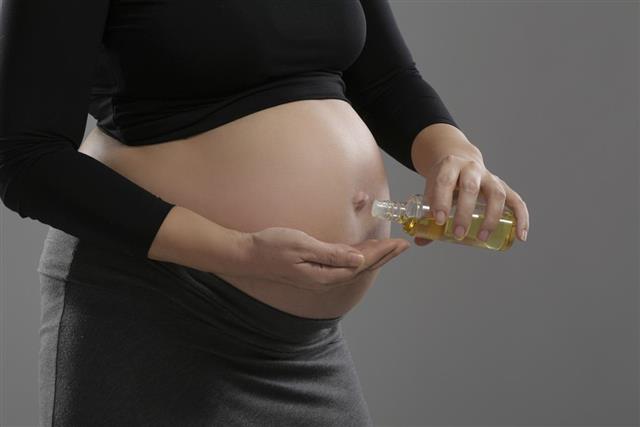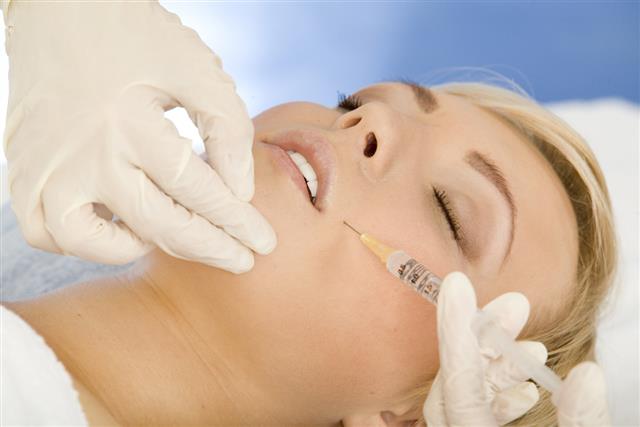
Most people advise against the use of hair relaxers while they are pregnant for fear of exposing their baby to unwanted chemicals. This article will give you information on this products and whether it is fine to use them while one is pregnant.
Pregnancy is a time when the body of a woman goes through so many changes that she is left confused about what she should do, and the things that she should avoid. Women who often opt for hair treatments like coloring and curling, often stay away from these treatments during pregnancy. This is because they are concerned about the impact of the harmful chemicals and toxic substances, present in hair treatment products, on the unborn baby.
One such hair treatment that has been a concern for most pregnant women, especially African-American women who have extremely tight curly hair, are hair relaxers. Also known as chemical hair straighteners, hair relaxers are available in the form of creams or lotions.
These products help in relaxing curly or wavy hair, thus making it easier for the person to straighten the hair. However, due to the presence of chemicals in it, many experts advise women not to use it when they are pregnant. In this HerHaleness article, we look the chemicals in the hair relaxers and the dangers it poses for pregnant women.
Hair relaxers were first invented by Garrett Augustus Morgan Sr. There are two types of hair relaxers available in the market: lye relaxers and non-lye relaxers. The initial hair relaxers available in the market were lye relaxers, that contain 2 to 3.5 percent concentrations of sodium hydroxide or potassium hydroxide. Due to the negative impact of these chemicals on the hair which included damage to the hair, many professional cosmetologists now choose to straighten hair using non-lye relaxers. Containing calcium hydroxide cream and guanidine carbonate, which are mixed to form guanidine hydroxide, these relaxers can be used professionally or directly by the consumer at home.
The strong alkaline chemicals in the hair relaxers break down the disulfide bonds in the hair shaft, which is then straightened by combing. This process of straightening the hair is called lanthionization.
Some of the common side effects of hair relaxers include hair thinning, breakage, and damage to the scalp. Super-strength relaxers with extremely strong chemicals have also been known to cause lesions and burns in the scalp. Apart from these general side effects, hair relaxers can pose certain other risks during pregnancy. These include:
The Risk of Noxious Fumes
The strong smell of the chemicals in the hair relaxers can cause nausea, headaches, and dizziness, especially for women suffering from morning sickness during pregnancy. Due to the risk of chemical fumes, most health care providers advise against using them for at least the first three months of the pregnancy. If you have this problem and are opting for hair relaxing during pregnancy, then make sure that you get it done in a well-ventilated room.
Scalp Sensitivity to Chemicals
During pregnancy the volume of blood in a pregnant woman’s body increases dramatically so as to protect and nourish the baby. The blood flow to the scalp can result in an increased sensitivity to chemicals in hair relaxers. This may lead to skin irritation, scabs, and rashes.
Effectiveness of Hair Relaxers
Pregnancy is associated with a number of hormonal changes. Sometimes, the hormonal changes can cause the hair texture to change, and even worsen existing hair problems. The hair can get frizzier or rougher than normal. It can also break more than usual as a result of the exposure to chemicals. Moreover, the relaxers may become less effective in taming the coarse and frizzy hair.
While many people advise against using hair relaxers, there are another set of people who say that no scientific studies have proved the fact that chemicals present in hair relaxing serums can cause harm to the unborn baby. Although people previously believed that the toxic chemicals in hair products may be absorbed through the scalp in sufficient amounts to increase the risks of adverse health effects in women or increase the risk of preterm births, research and case-control study by Blackmore-Prince et al found no association of hair-relaxer use and preterm birth. The limited systemic absorption is believed to cause no harm to the fetus. Nevertheless, certain things have to be considered before one goes for a hair treatment during pregnancy.
Curly hair can get extremely rough and unmanageable during pregnancy. If you are opting for hair relaxing treatments during pregnancy, then ensure that you follow certain precautions while doing so.
» Get the treatment done by experienced and reputable professional stylists only. They can do strand tests to ensure that the hair can handle the relaxing treatment.
» If you are doing it at home, make sure that you wear plastic disposable gloves and get the treatment done in a place that is well-ventilated.
» Use a base cream or petroleum jelly to minimize damage to scalp skin. Avoid hair relaxing treatments when you have wounds and cuts on the scalp, as it can lead to increased systemic absorption of the chemicals.
» Since the effectiveness of the hair relaxing treatment decreases during pregnancy, many women get it done more often. This is not advisable, and a gap of six to eight weeks should always be kept between two consecutive applications.
Although there might not be any hard-core scientific evidence that makes hair relaxing treatments dangerous to the fetus, proper precautions should be taken to avoid any kind of problems. It is also best to avoid indulging in hair relaxing treatments during the first trimester as this is considered to be the most sensitive period during pregnancy. This time is crucial because organ development and rapid cell division occur during this time. Even mild exposure to any kind of chemicals may lead to complications in fetal development.


